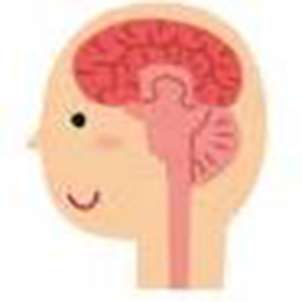The significance of non-motor microtubule-associated protein in maintaining synaptic plasticity thorough a novel mechani

NMDA glutamate receptors, which function as receptors that bond with glutamates, are known to be deeply involved in animal memory and learning. In order for memories to be created inside the brain, these NMDA glutamate receptors must first be transported to and accumulated in the synapses.
University of Tsukuba Faculty of Medicine Professor Yosuke Takei, in a joint study with the University of Tokyo, has for the first time clarified the mechanism in the brain that inhibits derailment of the receptor transport that supports memory.
The research group has ascertained that a molecule known as MAP1A connects NMDA glutamate receptors as they are being transported to the synapses to the microtubules, stabilizing the receptors and preventing them from becoming "derailed," and playing a role in improving the overall efficiency and stability of the transport process. In the nerve cells of mice that lack MAP1A, the NMDA glutamate receptors are not carried effectively to the synapses, resulting in a remarkable loss of memory capabilities in the mice.
The transport of NMDA glutamate receptors is a fundamental system that supports brain functions such as memory and learning. Recently, however, discoveries such as receptor transport abnormalities in the brains of schizophrenia patients, have started to show the receptors' deep involvement in neuropsychiatric disorders. Developments of drug and gene therapies that can be effective on the receptor transport support system clarified in this study are expected to give rise to new treatment strategies for memory impairment and schizophrenia.
More information: Y. Takei et al. Defects in Synaptic Plasticity, Reduced NMDA-Receptor Transport, and Instability of Postsynaptic Density Proteins in Mice Lacking Microtubule-Associated Protein 1A, Journal of Neuroscience (2015). DOI: 10.1523/JNEUROSCI.2671-15.2015















